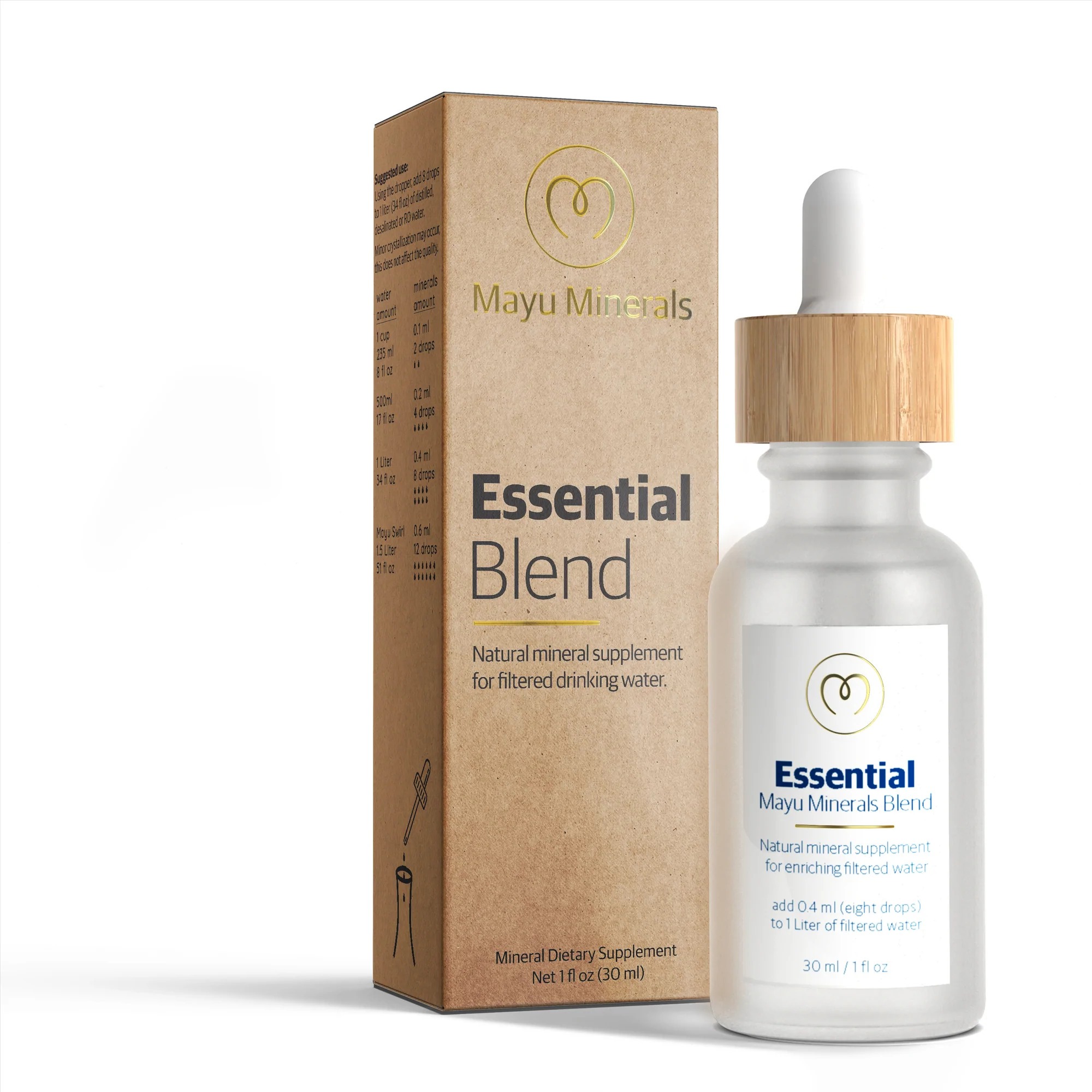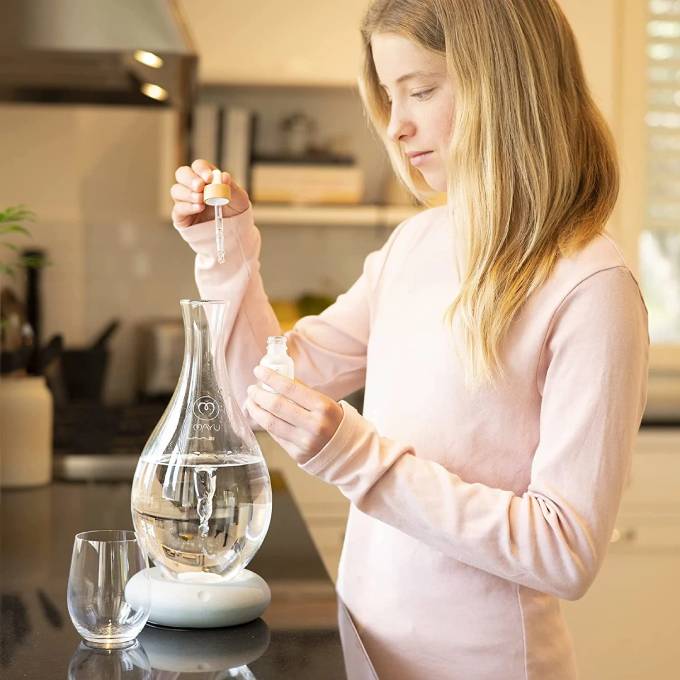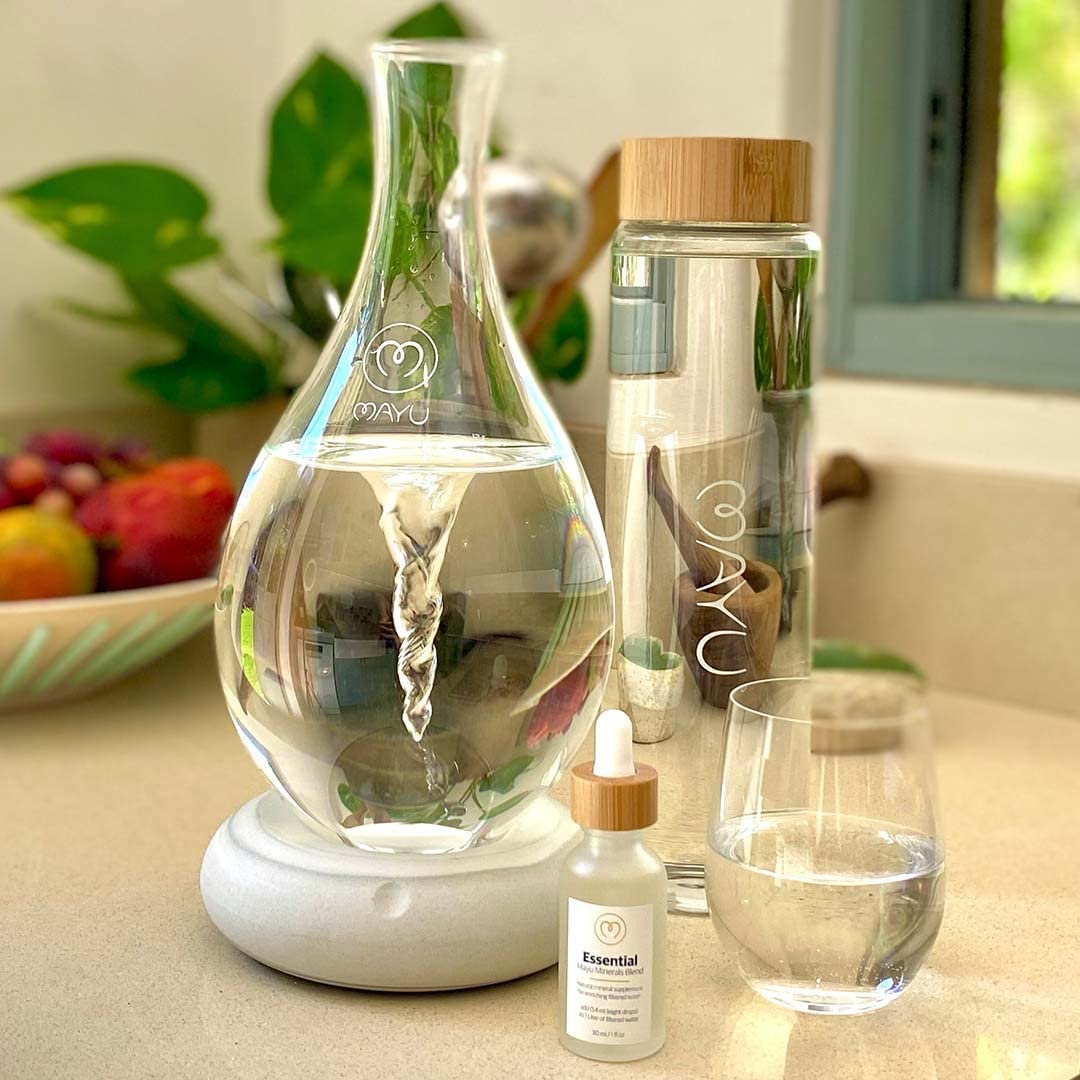Hydration & Inflammation: What the Science Says
Learn how proper water intake can help manage inflammatory conditions and which types of water offer the strongest anti-inflammatory benefits.
Updated May 29, 2025

Wondering why doctors always tell you to drink more water when you're sick? Well, you've come to the right place. There's actually some fascinating science behind how your hydration status affects inflammation in your body.
Let's explore this connection and discover how something as simple as drinking the right water can help manage inflammatory conditions.
» Improve health and hydration with Mayu's Essential Minerals
Understanding Inflammation and Its Link to Hydration
Inflammation occurs when the immune system responds to harmful stimuli like pathogens, damaged cells, or toxic compounds [1]. The process involves increased blood flow, the release of inflammatory markers, and recruiting immune cells to the affected area.
While this response is essential for proper healing and recovery, chronic inflammation can contribute to numerous health problems. Enter hydration: proper fluid balance is crucial for managing inflammatory processes and potentially reducing their negative effects, from heart disease to arthritis [2].
The Science Behind Hydration and Inflammation
At the cellular level, hydration affects inflammation in four key ways [3]:
- Specialized water channels called aquaporins help immune cells communicate and maintain their structure during inflammation.
- Even mild dehydration activates the lining of blood vessels, reducing helpful compounds like nitric oxide and increasing inflammatory markers.
- Proper hydration promotes protein synthesis and energy storage, while dehydration triggers breakdown of these important molecules.
- Staying hydrated helps maintain a healthy gut microbiome, which regulates your body's overall inflammatory balance.
» Learn how water protects your immune system
What Happens When You Don't Drink Enough
You might be surprised at how strongly dehydration affects inflammation [4]. When you don't stay properly hydrated:
- Your Minerals Become Unbalanced: Dehydration alters the balance of sodium, potassium, and zinc, triggering immune system activation and increasing inflammation.
- Your Cells Can Get Damaged: Low hydration states increase reactive oxygen species (ROS), leading to lipid peroxidation, protein denaturation, and DNA damage.
- Systemic Inflammation Increases: Dehydration impacts skin barrier integrity and endothelial function, contributing to systemic inflammation.
- Your Immune System Works Harder: Your immune system adapts to dehydration by altering its structural permeability to prioritize fluid movement, but this compensation can heighten inflammatory signaling.
» Discover how to hydrate yourself when you're dehydrated
Hydration and Joint Health
If you're suffering from arthritis or joint pain, hydration is particularly important. Here's why:
- Cartilage is composed of 70-80% water, which is essential for delivering nutrients to cartilage cells.
- Water maintains proper lubrication and supports the joint's load-bearing capacity.
- Synovial fluid—the lubricant that enables smooth joint movement—is water-based.
- Adequate hydration supports joint health by preserving both the volume and viscosity of synovial fluid.
When you're dehydrated, joint function is impaired, friction between joint surfaces increases, and cartilage nourishment suffers—all factors that can worsen joint pain and inflammation, especially in conditions like rheumatoid arthritis.
The Best Anti-Inflammatory Hydration Options
Not all water is created equal when it comes to fighting inflammation. Research has identified several healthy types of water to drink that may offer enhanced benefits [5]:
Hydrogen-Rich Water
Hydrogen-rich water (HRW) has shown significant anti-inflammatory activity—clinical studies have found that consuming 1.5 liters daily for four weeks reduces cell death and inflammatory responses.
Not only does it reduce DNA oxidation and cellular damage by downregulating inflammatory signaling pathways, but it also promotes biological antioxidant capacity, with even greater benefits for adults over 30.
Mineral-Rich Water
Water containing essential minerals, especially magnesium, has effective anti-inflammatory properties. Let's explore:
- Better Absorption: Minerals are absorbed more efficiently in ionized, water-soluble forms. This includes magnesium, which plays a vital role in immune regulation.
- Antioxidant-Rich: Some spring mineral waters, such as magnesium-sulfate-sulfurous spring water, show antioxidant effects and help protect against oxidative damage.
» Learn about the must-have essential minerals for your drinking water
Modern Approaches to Water Enhancement
Specialized water enhancement systems, like MAYU's vortexing technology, offer a natural approach to improving water quality. By creating gentle swirls, these systems help structure water molecules and increase oxygen levels through natural aeration.
This process may help remove volatile compounds while maintaining beneficial minerals, potentially creating water that better supports your body's anti-inflammatory processes.
When Water Could Increase Inflammation
While proper hydration generally helps reduce inflammation, certain water sources or hydration practices could worsen it instead.
Contaminated Water
Water containing heavy metals and pollutants is a major contributor to chronic inflammation [6]. Here are three key contaminants to be aware of:
- Lead: Even minimal exposure to lead is associated with gastrointestinal distress, cognitive issues, and increased inflammation.
- Arsenic: Drinking water tainted with arsenic can cause skin diseases and increase cancer risk.
- Chromium and Nitrates: Other contaminants like chromium and nitrates can disrupt physiological functions and trigger harmful inflammatory responses.
» Find out how reverse osmosis can clean tap water
Overhydration
Believe it or not, drinking too much water can also be problematic. Excessive fluid intake can create an imbalance between extracellular and intracellular water, which can contribute to systemic chronic inflammation.
Overhydration can also dilute sodium levels (hyponatremia), causing serious complications.
While people with healthy kidney, heart, liver, and pituitary functions typically regulate excess fluids effectively, consistently drinking more than required should be avoided.
» Discover the best types of water to drink for optimal hydration
Fighting Inflammation Through Smart Hydration
So, how can you use water to help tame inflammation? Here are some practical strategies that science suggests may help:
- Try Herbal Infusions: If you're a tea lover, caffeine-free options like ginger and green tea deliver anti-inflammatory compounds and hydration. Even simple lemon water can help [7].
- Go Mineral-Rich: Adding minerals like magnesium to your water helps reduce inflammation. This might be especially helpful if you have achy joints [8].
- Match Your Water to Your Needs: If you're dealing with an autoimmune condition, mineral water might help. Clean, filtered water will be your best bet if you suffer from acute inflammation.
» Go over our five refreshing drink recipes to keep hydrated at home
Take Control of Your Inflammatory Response
The connection between hydration and inflammation offers an accessible way to improve your health. By ensuring adequate hydration with high-quality water, you may be able to help manage inflammatory conditions and support your body's natural healing processes.
With MAYU's innovative water enhancement technology and Essential Minerals, you can easily transform ordinary tap water into revitalized water that may better support your body's anti-inflammatory needs.
The gentle vortexing action mimics nature's water purification process, potentially creating refreshing and beneficial water for your overall inflammatory balance.
References
1. Chen, L., Deng, H., Cui, H., Fang, J., Zuo, Z., Deng, J., Li, Y., Wang, X., & Zhao, L. (2017). Inflammatory responses and inflammation-associated diseases in organs. Oncotarget, 9(6), 7204–7218. https://doi.org/10.18632/oncotarget.23208
2. Allen, M. D., Springer, D. A., Burg, M. B., Boehm, M., & Dmitrieva, N. I. (2019). Suboptimal hydration remodels metabolism, promotes degenerative diseases, and shortens life. JCI Insight, 4(17). https://doi.org/10.1172/jci.insight.130949
3. Connecting the dots: hydration, micronutrients, and immunity. (n.d.). https://www.japi.org/article/japi-72-6-s1-25
4. Liu, J., Xu, S., Ma, Z., Jiang, Y., Zhao, H., & Ren, L. (2022). Water loss and defects dependent strength and ductility of articular cartilage. Journal of Materials Research and Technology, 21, 1714–1723. https://doi.org/10.1016/j.jmrt.2022.10.024
5. Albertini, M. C., Dacha, M., Teodori, L., & Conti, M. E. (2007). Drinking mineral waters: biochemical effects and health implications the state-of-the-art. International Journal of Environment and Health, 1(1), 153. https://doi.org/10.1504/ijenvh.2007.012230
6. Quinete, N., & Hauser-Davis, R. A. (2020). Drinking water pollutants may affect the immune system: concerns regarding COVID-19 health effects. Environmental Science and Pollution Research, 28(1), 1235–1246. https://doi.org/10.1007/s11356-020-11487-4
7. Ruxton, C. H., & Hart, V. A. (2011). Black tea is not significantly different from water in the maintenance of normal hydration in human subjects: results from a randomised controlled trial. British Journal of Nutrition, 106(4), 588–595. https://doi.org/10.1017/s0007114511000456
8. Quattrini, S. (2016). Natural mineral waters: chemical characteristics and health effects. Clinical Cases in Mineral and Bone Metabolism. https://doi.org/10.11138/ccmbm/2016.13.3.173
Disclaimer: The information published by Mayu Water is not a substitute for the expert knowledge, advice, and recommendations of trained professionals. We strongly recommend consulting with industry experts and primary or scientific sources before making any health, research-related, or other important decisions.


















































